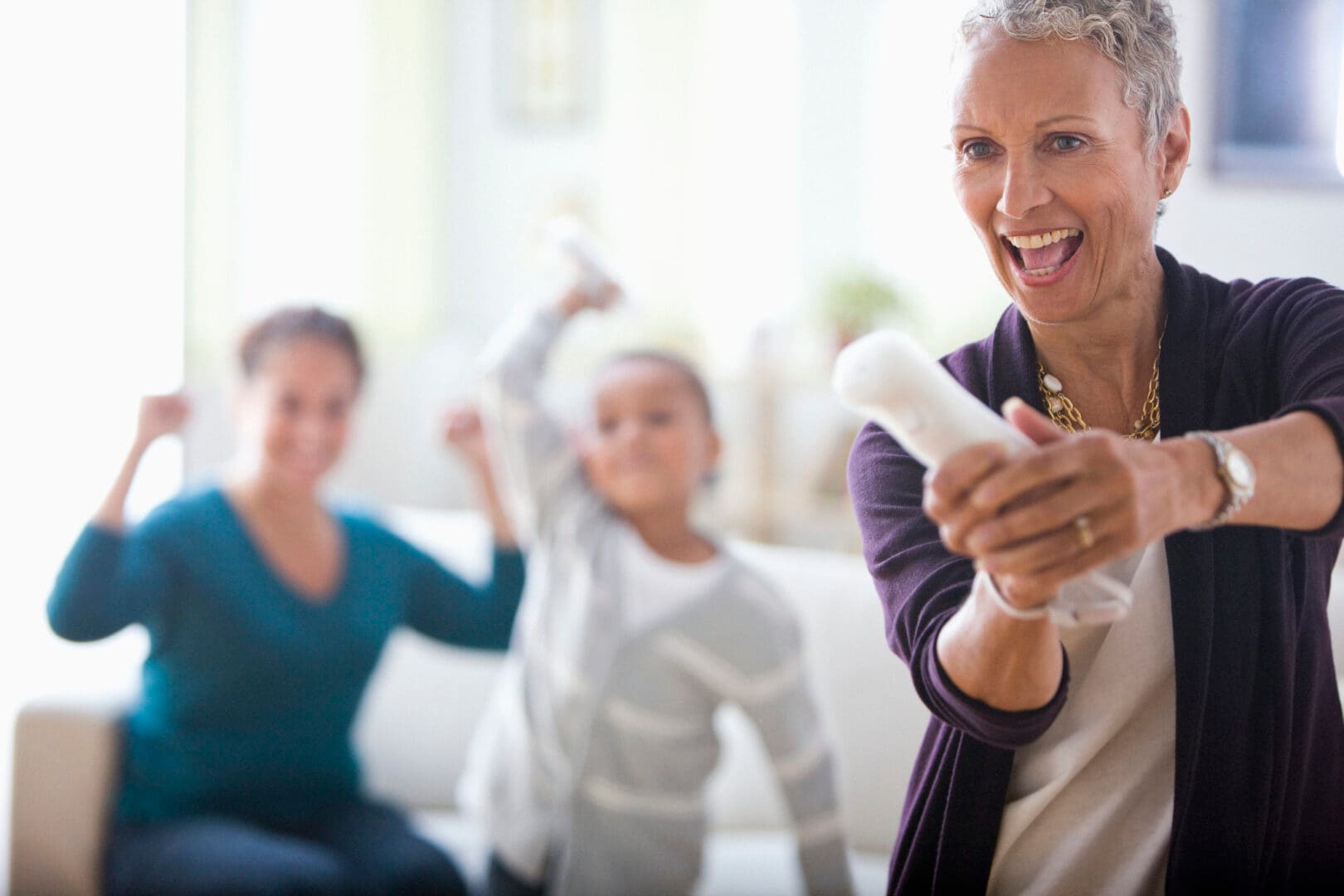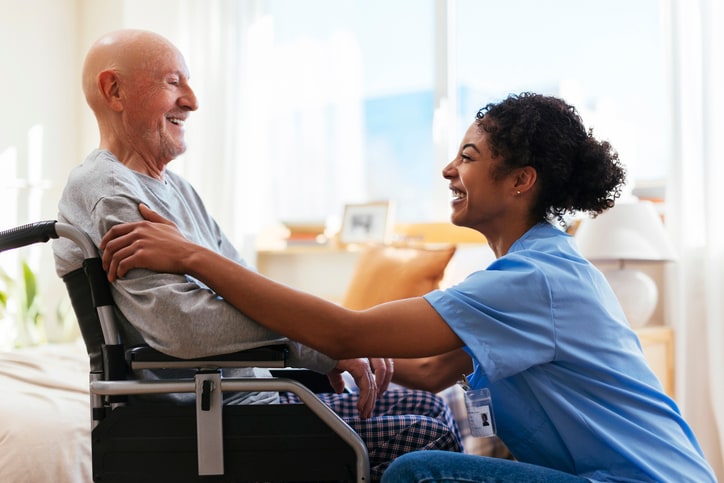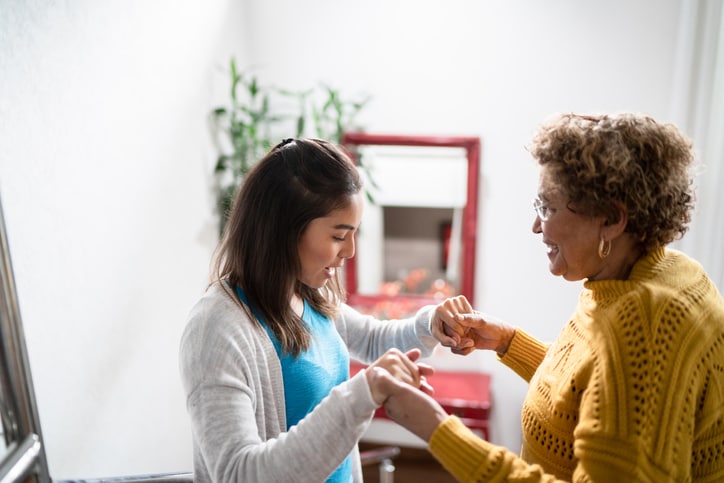Playing computer games or fiddling with smartphone apps is often frowned upon as a waste of time. But for older adults and their caregivers, these can be tools that promote health and well-being.
Seniors benefit from keeping their minds active, and technology can help with this in a multitude of ways, says Dr. Allen D. Andrade, Assistant Professor of Geriatrics and Palliative Medicine at Mount Sinai in New York City.
While research shows that some technology, such as wearable health-tracking apps can change short-term behaviors positively, there isn’t yet research to support long-term improvements, Andrade says. But he notes that some technologies, especially those that help address real-world problems such as increasing physical activity or remembering medications, can add value for seniors and their caregivers. “The digital interventions with the best chance of success are fun and easy to use, don’t need ongoing data input and promote social interaction,” he says.
Whether you’re an aging adult or the caregiver of a senior, try these digital tools and apps to sharpen memory, boost physical and mental health, improve balance and manage medications.
Brain games for seniors
Any mentally challenging activities can boost brain health, both short- and long-term, according to the Alzheimer’s Association. This includes learning new skills, obtaining formal education, trying different hobbies, working a jigsaw puzzle or playing strategy games.
While there are countless digital games and apps that offer these activities, two options are made specifically for improving cognition or memory via games:
Luminosity: This brain game program is backed by science and research, and the app is personalized to the user. Luminosity claims their brain training can improve memory, attention, focus, problem-solving, processing speed and problem-solving skills. They aim to do this with fun, easy-to-learn games that just so happen to enhance your cognition. It can be used on a desktop computer or an Apple or Android device. There’s a free option with limited games and features, or a paid option with more content. Luminosity also created a newer app called Figment that’s meant to help users explore their creativity.
BrightFocus: This nonprofit that funds Alzheimer’s research has several free memory-focused games embedded on their website, such as word-matching, picture-matching, crossword puzzles and sudoku.
Tech to build healthy habits
Wearable tech devices, like Garmin or Fitbit watches, can also feel like a “game” to beat while making it easier for older adults to build healthy habits. They can also be invaluable resources for caregivers, says Caroline Morris, a board-certified geriatric physical therapist in Alexandria, Virginia. She also has a health coaching business and utilizes these devices to help her patients in a variety of ways, from managing chronic conditions to increasing physical activity.
Benefits of wearable devices include:
Encouraging movement: A huge perk is how they bring awareness to activity levels, Morris says, and some buzz if users have been too sedentary over the past hour and buzz again to celebrate moving enough. “Especially for seniors, who as a group tend to spend a lot of time sitting, it can be beneficial to get reminders to move — not only for getting more steps, but for reducing back pain or joint stiffness,” she says.
Supporting goals: Wearable devices and their corresponding apps or website portals also allow you to create daily goals, such as steps taken, miles walked or calories burned. Users receive celebratory notifications when goals are met, and they may receive badges or other features that gamify practicing healthy habits.
Many of these devices also have optional competitions and community features, which Morris says helps some people stay on track as a form of extrinsic motivation. Though the goal, she says, is to eventually start enjoying being more active and feeling healthy so that the motivation becomes intrinsic.
Monitoring stress and chronic conditions: Beyond encouraging physical activity and providing entertainment value, some wearable devices track heart rate, heart rate variability, and even EKG, which can reveal how stressed the body is, Morris says. Some newer devices, such as the Fitbit Sense, also track nighttime temperature and oxygen saturation.
“Once the device is worn long enough and we can understand what our normal stress versus rest profile looks like, when differences show up in there, we start to be able to predict when our bodies are at risk for illness, over-fatigue or flare-ups of conditions,” Morris explains.
Morris says she’s also seen these devices be useful for caregivers of seniors who struggle to communicate their physical sensations, such as those with dementia or severe disease. The caregiver can track the senior’s metrics and observe their level of physical stress, which could indicate if it’s a good day for a lot of activity or if they need rest. Morris adds that if the device’s metrics change noticeably in tandem with physical symptoms, it could help caregivers determine if it’s time to call a doctor.
Andrade notes that some wearable devices also provide location tracking, emergency phone calls, add reminders and provide fall monitoring that can contact 911 or loved ones if a fall is detected.
And if your older loved one doesn’t love the idea of wearing a device but wants to build healthy habits, they might like one of Morris’ favorite app-based games: SuperBetter.
The app prompts the user to goals and go on “quests” to help you gain physical, mental, emotional and social strength, and you can recruit allies to help cheer you on. You can create your own or choose from existing ones, and they can range from reaching out to several loved ones to taking weekly hikes to doing a creative activity regularly.
Video games to improve balance and coordination
Video games may get a bad rap, but the Nintendo Wii console can be hugely beneficial for seniors, Morris says. Older adults or their caregivers can purchase the Wii Fit game, which is full of physical activities, games and exercises, along with its balance board, which is a pad users stand on that tracks movement.
Morris frequently uses Nintendo Wii with her physical therapy patients who are recovering from strokes since it helps them with regaining balance. She’s also found it beneficial with older adults who are struggling with balance issues and knowing where their body is in space since the technology provides so much real-time input in an enjoyable experience.
“There is a ton of research on Nintendo Wii, from physical to cognitive benefits,” Morris says. “I think fun is a big piece of it, and there are just so many more components of the brain that are used in the gaming experience than just an exercise I could come up with. They have to take in multiple pieces of information and move their body in specific ways, and there’s a sense of adventure in it too.”
Don’t dismiss classic games for seniors
If technology poses too great a barrier, there’s nothing wrong with using tangible games or tools to help improve mental and physical health. For example, The Alzheimer’s Store has a collection of physical games that work to improve memory and cognition, and in some cases, help with hand-eye coordination. There’s also always the option to use physical sudoku or crossword books, jigsaw puzzles, board games, arts and craft kits and any other tools to promote engagement and activity.
Adopting new technology comes with a learning curve, but once you get the hang of them, these apps and tools can boost physical and mental health, enhance cognition, improve organization — and even offer your older loved one a little fun and enjoyment.





